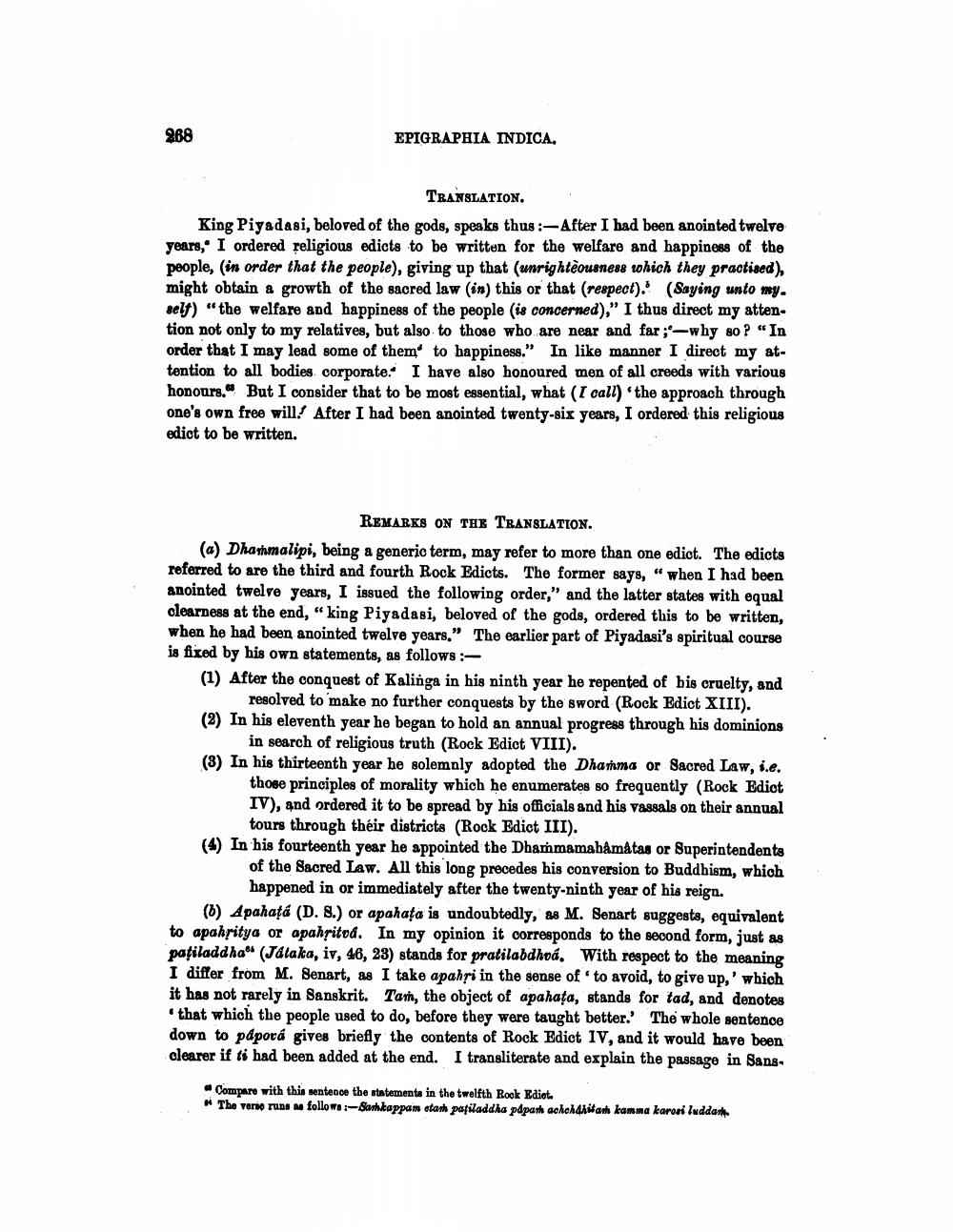________________
288
EPIGRAPHIA INDICA.
TRANSLATION. King Piyadasi, beloved of the gods, speaks thus:-- After I had been anointed twelve years, I ordered religious edicts to be written for the welfare and happiness of the people, (in order that the people), giving up that (unrighteousness which they practised), might obtain a growth of the sacred law (in) this or that (respect). (Saying unto my. self) "the welfare and happiness of the people (is concerned)," I thus direct my attention not only to my relatives, but also to those who are near and far; -why 80 ? "In order that I may lead some of them to happiness." In like manner I direct my attention to all bodies corporate. I have also honoured men of all creeds with various honours. But I consider that to be most essential, what (I call) the approach through one's own free will! After I had been anointed twenty-six years, I ordered this religious edict to be written.
REMARKS ON THE TRANSLATION. (a) Dhashmalipi, being a generic term, may refer to more than one edict. The edicts referred to are the third and fourth Rock Edicts. The former says, “when I had been anointed twelve years, I issued the following order," and the latter states with equal clearness at the end, "king Piyadasi, beloved of the gods, ordered this to be written, when he had been anointed twelve years." The earlier part of Piyadasi's spiritual course is fixed by his own statements, as follows :(1) After the conquest of Kalinga in his ninth year he repented of bis cruelty, and
resolved to make no further conquests by the sword (Rock Edict XIII). (2) In his eleventh year he began to hold an annual progress through his dominions
in search of religious truth (Rock Edict VIII). (3) In his thirteenth year he solemnly adopted the Dhamma or Sacred Law, i.e.
those principles of morality which he enumerates so frequently (Rock Edict IV), and ordered it to be spread by his officials and his vassals on their annual
tours through their districts (Rock Edict III). (4) In his fourteenth year he appointed the Dhammamahåmåtas or Superintendents
of the Sacred Law. All this long precedes his conversion to Buddhism, which
happened in or immediately after the twenty-ninth year of his reign. (6) Apahatá (D. S.) or apahata is undoubtedly, as M. Senart suggests, equivalent to apahritya or apahşitoa. In my opinion it corresponds to the second form, just as pațiladdha" (Jdlaka, iv, 46, 23) stands for pratilabdhoá. With respect to the meaning I differ from M. Senart, as I take apahfi in the sense of to avoid, to give up,' which it has not rarely in Sanskrit. Tam, the object of apahața, stands for tad, and denotes
that which the people used to do, before they were taught better. The whole sentence down to páporá gives briefly the contents of Rock Edict IV, and it would have been clearer if ti had been added at the end. I transliterate and explain the passage in Sans
- Compare with this sentence the statements in the twelfth Rock Ediet. "The verso runs follows:- Sarkappan otash patiladdha pdpath ache
anh lam makaroni luddarle




